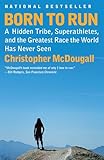Since I became a mother four months ago, my method of choosing reading material has changed. Firstly, the book in question must be what John Gardner called profluent; that is, readable, one page pushing me to the next and the next, until, in a rush, I’m finished. A book that I can’t put down is a book that I’ll want to read even if I haven’t slept, even if my nipples are sore and my hair is matted with throw-up. (Motherhood and college aren’t that different, you see.) Because I’m severely sleep-deprived, the prose of said book can’t be too dense. I need to understand what’s happening, okay? Lastly, the book can’t be too heavy. I don’t mean this figuratively, I mean that the book must be light enough to read with one hand, as I will need the other one to hold my son as he nurses. He nurses a lot. I tried to read The Art of Fielding and my wrist almost broke.
This is how I started reading smart crime novels. First I went on a Tana French tear, and then I ate up Crooked Letter, Crooked Letter by Tom Franklin, which added Mississippi and snakes to its tale of dead bodies and a misunderstood outcast. These were well-written, completely manageable Mom Books. I re-read The End of Vandalism by Tom Drury, which, with its snap-shot scenes and meandering plot, didn’t have profluence so much as a poetic realism that kept me in its clutches.
And then I decided to try some nonfiction. I’d recently given up reality television (er, most of it) after Rachel Zoe said “literally” for the zillionth time, and I thought reading a true story would scratch the itch of confessionals, cat fights, and the shock that the drama is all too real.
 I chose Christopher McDougall’s Born to Run: A Hidden Tribe, Superathletes, and the Greatest Race the World Has Never Seen because it was a Word Bookstore Favorite at this year’s Brooklyn Book Festival. I didn’t attend the festival, but the store listed it in their e-newsletter as the book “that can change your life.” (I see now that the key word is “can”–not “will.” Oh those cagey booksellers!) Since I’d been considering getting back into running, I figured it might help motivate me.
I chose Christopher McDougall’s Born to Run: A Hidden Tribe, Superathletes, and the Greatest Race the World Has Never Seen because it was a Word Bookstore Favorite at this year’s Brooklyn Book Festival. I didn’t attend the festival, but the store listed it in their e-newsletter as the book “that can change your life.” (I see now that the key word is “can”–not “will.” Oh those cagey booksellers!) Since I’d been considering getting back into running, I figured it might help motivate me.
Let me get this out of the way: I hate running. I did it a few times a week for about six months before I got pregnant, and I was happy to stop. I never enjoyed it: it hurt, it was boring, and I always worried about getting a sunburn. I much prefer exercise that requires learning a routine; if there’s a mirror to admire and curse myself as I do so, all the better. However, I liked the idea of reading about running. A well-written depiction of physical exertion is supremely satisfying; it’s like watching The Biggest Loser, bowl of ice cream in hand.
Born to Run is about a tribe in Mexico called the Tarahumara who run incredibly long distances with grins on their faces and nary an injury. Like all good nonfiction, though, it’s about far more. The book seems to simultaneously dilate and contract–its scope becomes bigger as it focuses on smaller, personal stories. As it progresses it folds in more and more information and background: we’re looking for a cadaverous-looking white man who runs with the Indians, known as Caballo Blanco; we’re discovering the lifestyle, diet and outlook of the Tarahumara; we’re learning the biographies of some of the best ultra-marathoners in the world, such as the keyed up and loquacious Barefoot Ted, who, you guessed it, runs without shoes; we’re meeting scientists who might have figured out why we run in the first place; we’re celebrating the beauty and insanity of the human race. By the last fifty pages I couldn’t wait to go to a dinner party to share some of these amazing stories and facts. Everything I said to my husband began with: “Did you know…” My brain was aglow.
I also liked McDougall’s own role in the book. At the story’s opening he’s a casual jogger with a bum foot, and at the end he’s competing in a Tarahumara race. Much of his struggle reminded me of novel-writing. His trainer tells him, “Just beat the course. No one else, just the course,” and that advice helps him reach the finish line. These are also wise words for anyone who’s mired in the first (or tenth) draft of a book: put away thoughts of the larger literary world, its capricious machinations, its fellow writers, and focus on the writing itself. And, most importantly, don’t forget to smile. McDougall argues that the runner who approaches the act with joy, and who faces the world at large with that same open heart, is better runner. I’d say the same applies to the writer. It’s no coincidence that Anton Chekhov considered compassion a requirement of fiction writing.
The fact that I haven’t yet returned to running is no fault of this book. I will. I promise. When I do, I will keep my gait and posture in mind, and I will approach the challenge as a child would–that is, like it’s not a challenge at all.
Until then, I’d rather be reading.










